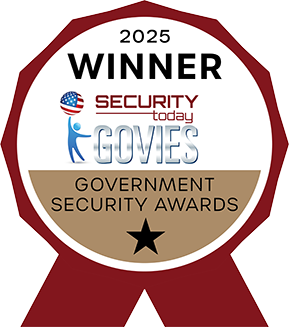Juror Self-Check-in and Public Information Kiosk Case Study

CASE STUDY OVERVIEW
Government Agency: County | Judicial Courts Systems
Number of Courthouse Buildings: 10
Number of ALICE Kiosks Deployed: 25
AGENCY DETAILS
This Juror Self-Check-in and Public Information Kiosk Case Study focuses on how the county court system sought to implement technology to reduce Jury check-in time and reliance on human resources during peak hours of jury check-in each day. In addition, the court needed to implement a public information kiosk that would provide visitors with self-help options on directions, services, departments, and other information specific to each courthouse location. The county also needed to provide information in six different languages to meet the needs of its community.
CHALLENGES
Government Agencies that purchase ALICE Receptionist systems are typically trying to solve some of the following common challenges:
- Coverage
- Multilingual Support
- Self-Serve Information
- Remote Locations
The Juror Self-Check-in and Public Information Kiosk Case Study highlights how ALICE Receptionist was chosen because the software is flexible enough to meet the Courts’ unique needs, it was able to provide hardware options designed for public spaces and high-traffic usage, and it has an affordable pricing model.
THE SOLUTION
25 ALICE Kiosks were deployed to 10 courthouse buildings in a phased approach over an 18-month period as part of the Juror Self-Check-in and Public Information Kiosk Case Study. This approach allowed the courts to evaluate user interaction with the kiosk and make adjustments based on information learned from the first systems installed.
Over the first 12 months, 19 of the 25 planned kiosks were deployed to the 10 courthouse locations, and the remaining six were deployed shortly thereafter.
ALICE Reception deployed two types of Kiosk solutions to meet the Court’s needs.
ALICE Receptionist Juror Self-Check-in Kiosk:
The ALICE Receptionist for Government’s Juror Self-Check-in kiosk worked with Juror Systems Incorporated (JSI)’s JURY Express Check-In system. With the JURY Express Check-in software embedded inside the ALICE Receptionist application, Jurors could simply scan the barcode on the Juror Summons paperwork at the ALICE kiosk. This feature allowed jurors to check in quickly and conveniently.
ALICE Receptionist Public Information Self-Help Kiosk
The ALICE Receptionist Informational Self-Help Kiosk provided the courthouse’s visitors with interactive information in 6 different languages. Using the self-help kiosk allows citizens to access:
- Courthouse building Maps
- Departmental information
- Courthouse Services
- How-To information
- And more.
RESULTS (First 12 months)
- 67,000+ Self-Help Customer Interactions
The Informational Self-Help Kiosks recorded over 67,000 customer interactions in the first 12 months as part of the Juror Self-Check-in and Public Information Kiosk Case Study.
- 94,000+ Juror Check-ins
The Juror Self Check-in kiosk processed over 94,000 Juror Check-ins in the first 12 months.
- 80% Reduction of Employee Assisted Check-ins
These 94,000 self-check-ins represented an 80% reduction of check-ins involving a courthouse employee as documented in the Juror Self-Check-in and Public Information Kiosk Case Study. The remaining 20% of Juror check-ins were appointments that required employee involvement.
SUMMARY
The ALICE Receptionist Juror Check-in and Information Self-Help kiosk provided the Courthouses with the technology solution they needed to improve efficiencies and reduce the burden on courthouse employee resources. This enabled jurors to have an improved and quicker check-in process when they arrived for jury duty, as demonstrated in the Juror Self-Check-in and Public Information Kiosk Case Study.
For all citizens visiting the courthouse buildings, the information kiosks were able to provide interactive information that allowed citizens to view maps to help direct them to where they needed to go and view services and departments available at the specific courthouse location. By providing this information on a self-help kiosk, the courthouse staff were freed from answering these common questions, so they could assist citizens in other areas.





